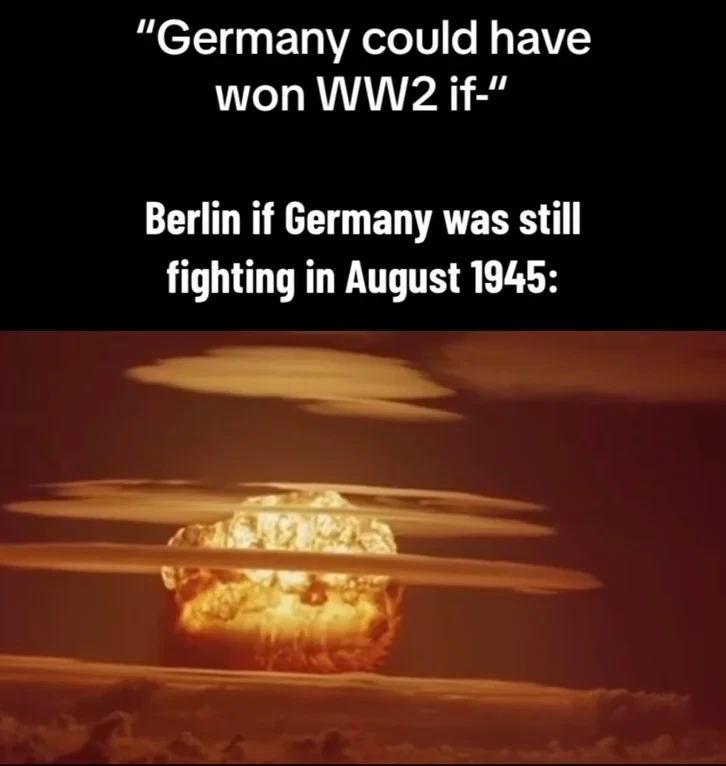this post was submitted on 28 Sep 2025
284 points (96.4% liked)
History Memes
921 readers
109 users here now
A place to share history memes!
Rules:
-
No sexism, racism, homophobia, transphobia, assorted bigotry, etc.
-
No fascism (including tankies/red fash), atrocity denial or apologia, etc.
-
Tag NSFW pics as NSFW.
-
Follow all Piefed.social rules.
Banner courtesy of @setsneedtofeed@lemmy.world
founded 6 months ago
MODERATORS
you are viewing a single comment's thread
view the rest of the comments
view the rest of the comments

The Strategic Bombing Survey outright ignored material that didn't fit their conclusion on the Pacific War, and I am aware of no serious trend in modern historical academia that regards the atomic bombings and the Soviet invasion and the impending American invasion to be immaterial in Japan's surrender.
First, I trust the numerous first hand accounts of actual leaders of the time over this one historian acting like their memories aren't great fifty years after the fact.
Second, the imminent Soviet invasion absolutely was a material factor. One of the reasons why the nukes were used were to end the war before the Soviets could invade so they couldn't dictate any terms of surrender.
This may be shocking, but leaders often lie. Only Eisenhower's memory was impugned in that statement. Sorry that contemporary accounts don't back up their later politiking.
Then why the fuck did you quote
Ah. I checked your comment history. A campist bootlicker. I think we're done here.
A material factor in the decision for the bombs to be dropped, not in the necessity for Japan to surrender. Those are two different things.
That historian is actually citing Japanese sources, which is more accurate than what the US leaders may have thought to be the case.
Hirohito actually used both the bombs as well as the Soviet invasion as justification to surrender. The civilian population was told it was due to the destructive power of the atomic bomb, the military were told they could not hold out against the Soviets.
It's not unlikely that not dropping the bombs would have led to a Japanese surrender, but it would likely have delayed it by some time. The bombs contributed greatly to the emergency meetings of the Japanese war cabinet in which ultimately the emperor decided to surrender. But it was a multitude of factors; the emperor was for example also unconvinced that the defense of southern Japan would be ready in time for the invasion, as earlier timelines hadn't been met. But he also said he did not want Japan and its innocent civilians destroyed due to further atomic bombs.